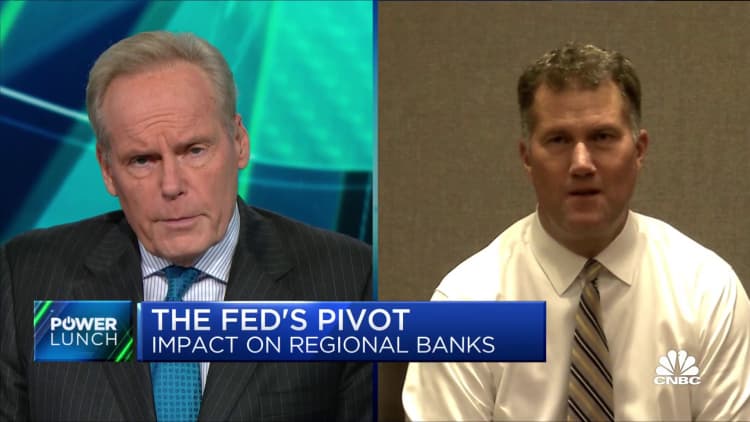
Stocks rebounded sharply on Thursday, following an omicron-driven sell-off in the previous session, as cyclical names made back some of their recent losses.
The Dow Jones Industrial Average gained 617.75 points to 34,639.79, helped by a 7.5% uptick in Boeing's stock. The S&P 500 rose 1.4% to 4,577.10. The technology-heavy Nasdaq Composite gained 0.8% to 15,381.32. The small-cap benchmark Russell 2000, full of the most economically sensitive names, added 2.7%.
Airline, casino and energy stocks led the gainers on Thursday, rebounding from Wednesday's market rout. Delta Air Lines rose about 9.3%, MGM Resorts added nearly 7.7%, and Hilton Worldwide gained 7.4%. Norwegian Cruise Line added 7.7% and Wynn Resorts closed up nearly 8.2%. Occidental Petroleum and Baker Hughes added 2.4% and about 2.5%, respectively.
Dow component Boeing's shares jumped 7.5% after China cleared the 737 Max to return to fly.
Investors continue to watch for developments on the new omicron Covid-19 variant, after the first U.S. case was confirmed on Wednesday.
The Biden administration reacted to the news that an omicron case had been reported in California by asking businesses to proceed with vaccination requirements, even though the administration's mandate was halted in courts pending review. The White House also tightened travel rules, requiring inbound passengers to be tested within 24 hours prior to departure.
A second case of omicron was revealed on Thursday. Minnesota public health authorities reported the case in a resident who recently returned from New York City. The Minnesota resident has already recovered from omicron, and the California resident reported mild symptoms.
On the negative side, Apple's stock dropped after Bloomberg News reported the tech giant is experiencing slowing iPhone demand ahead of the all-important holiday season.
"While it is nice to see a rally, I am not sure investors should put much meaning into it," said Jim Paulsen, chief investment strategist for Leuthold Group. "Fear and greed will dominate activity as investor worries oscillate between concerns the worst is not yet over and anxieties of missing out on any recovery."
The possibility of the Federal Reserve tapering its asset purchasing program at a faster-than-expected pace is also in focus.
Fed Chair Jerome Powell told a Senate panel on Tuesday that the "economy is very strong and inflationary pressures are higher, and it is therefore appropriate in my view to consider wrapping up the taper of our asset purchases, which we actually announced at the November meeting, perhaps a few months sooner."
"We remain cautious on S&P 500 amid a hawkish Fed tightening into an overvalued market," said Savita Subramanian, Bank of America Securities head of U.S. equity & quantitative strategy.
Still, Bank of America noted that December has historically been a strong month for the S&P 500, with the index gaining 2.3% on average since 1936 and positive 79% of the time. However, December has not always been immune to sell-offs, Subramanian added.
During regular trading on Wednesday, stocks posted strong gains earlier in the session, but fell on news that the first omicron case had been reported in California. The Dow closed down more than 460 points, after the 30-stock benchmark had advanced nearly 521 points at one point in the session.
"We've seen this movie before and Wall Street will likely remain COVID-variant headline driven until a clear assessment over this wave can be made," said Ed Moya, senior market analyst at Oanda. "The next couple of weeks will likely see risk appetite take a cue from incremental Omicron updates, supply chain issues, and every inflation reading," he added.
Thursday's gains continues a highly volatile streak for stocks as the market digests what the new variant means. The Dow is down 0.7% for the week. The S&P 500 and Nasdaq Composite have lost nearly 0.4% and 0.7% since Monday, respectively.
On the data front, initial jobless claims totaled 222,000 for the week ended Nov. 27. Economists were expecting a print of 240,000, according to estimates from Dow Jones. The prior reading showed 199,000 first-time filers, which was the lowest since November 1969.
The November jobs report will be released on Friday. Economists expect 573,000 jobs were created last month, up from 531,000 in October, according to Dow Jones. The unemployment rate is expected to have declined to 4.5% from 4.6%.



